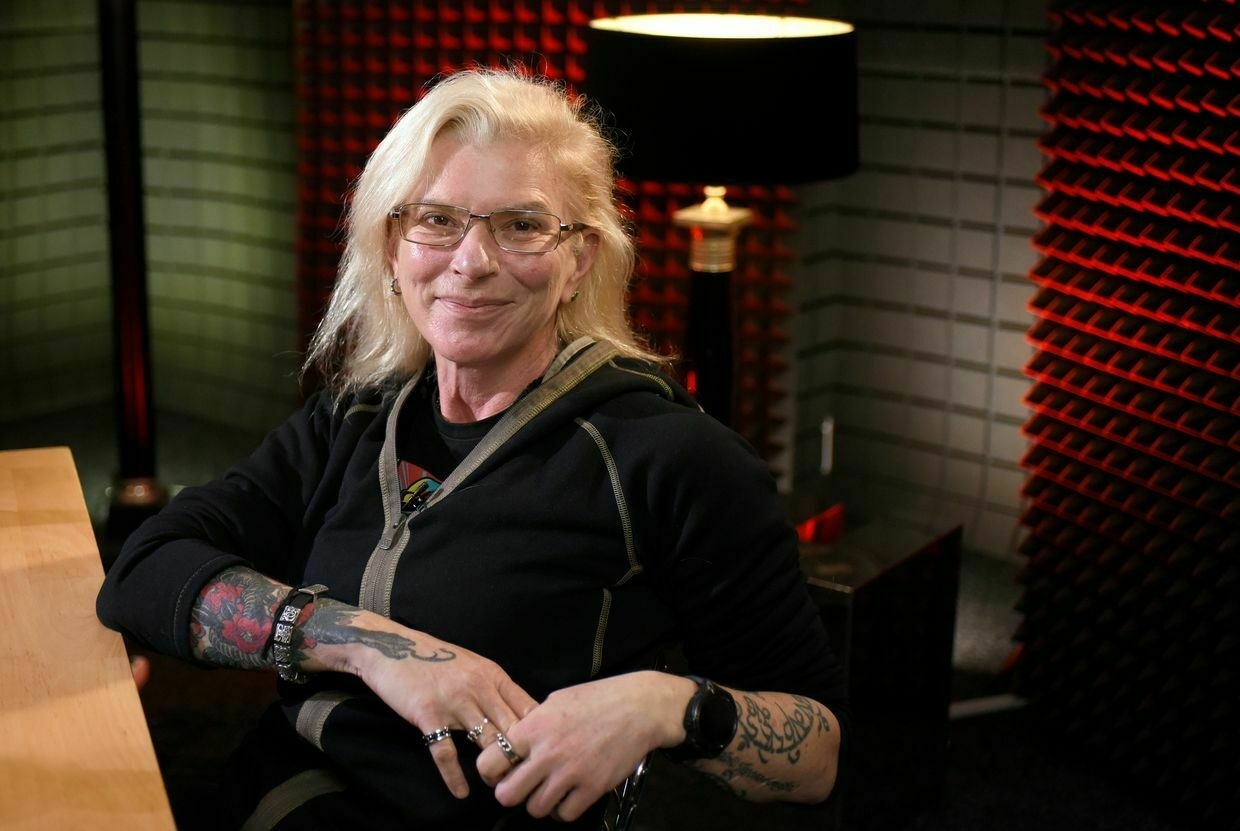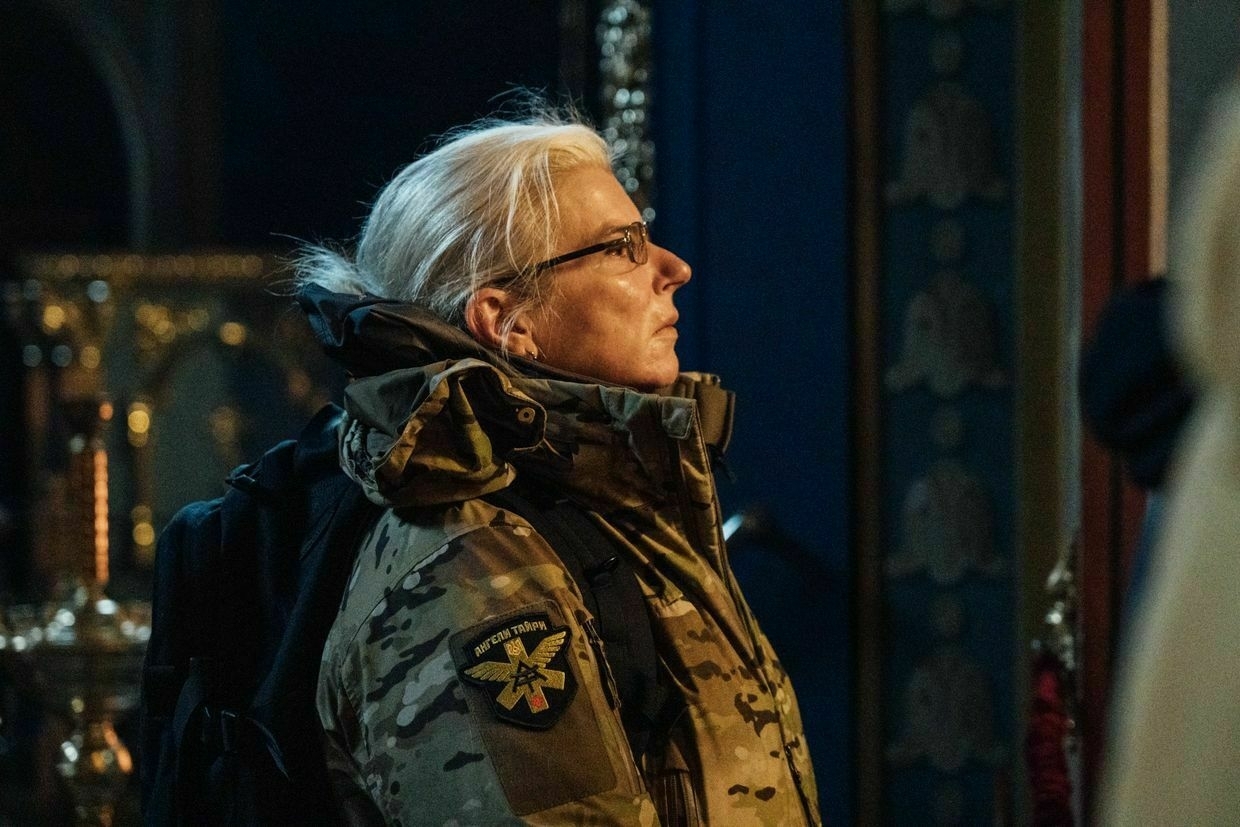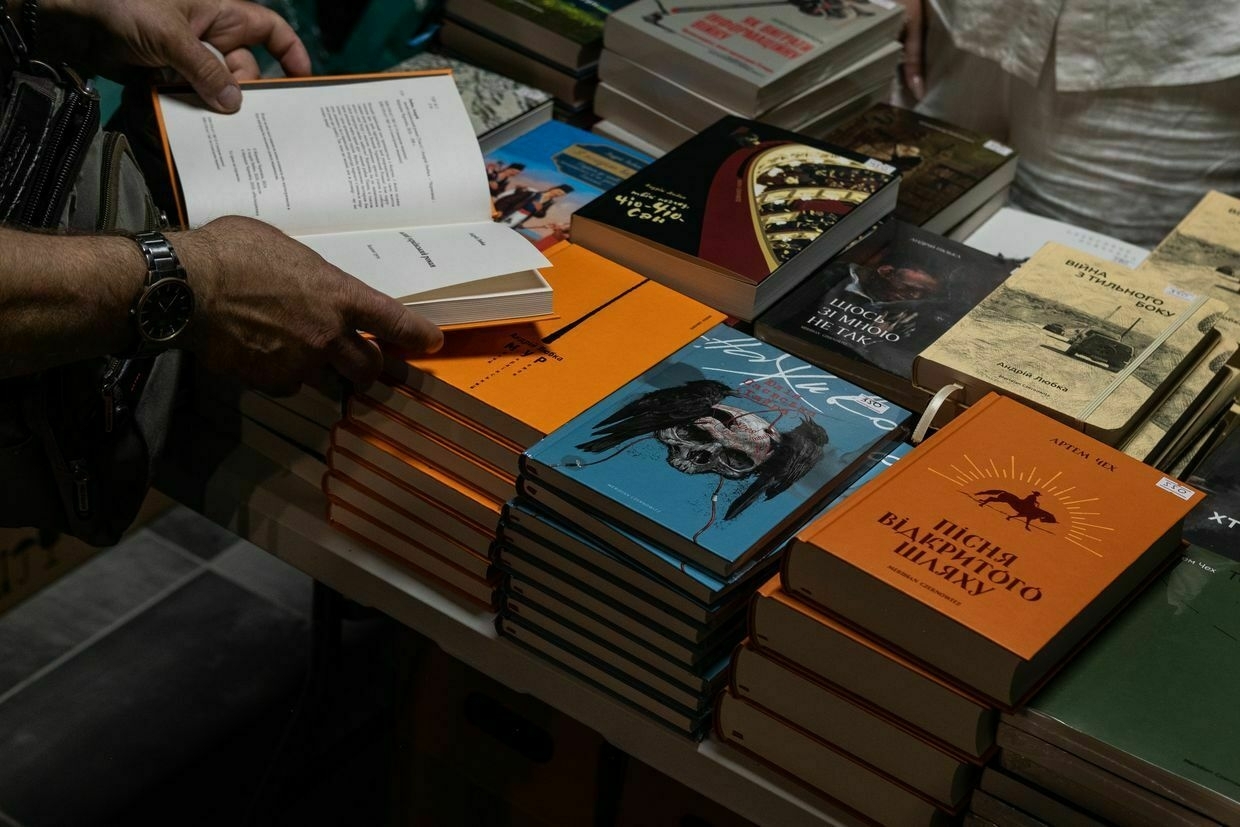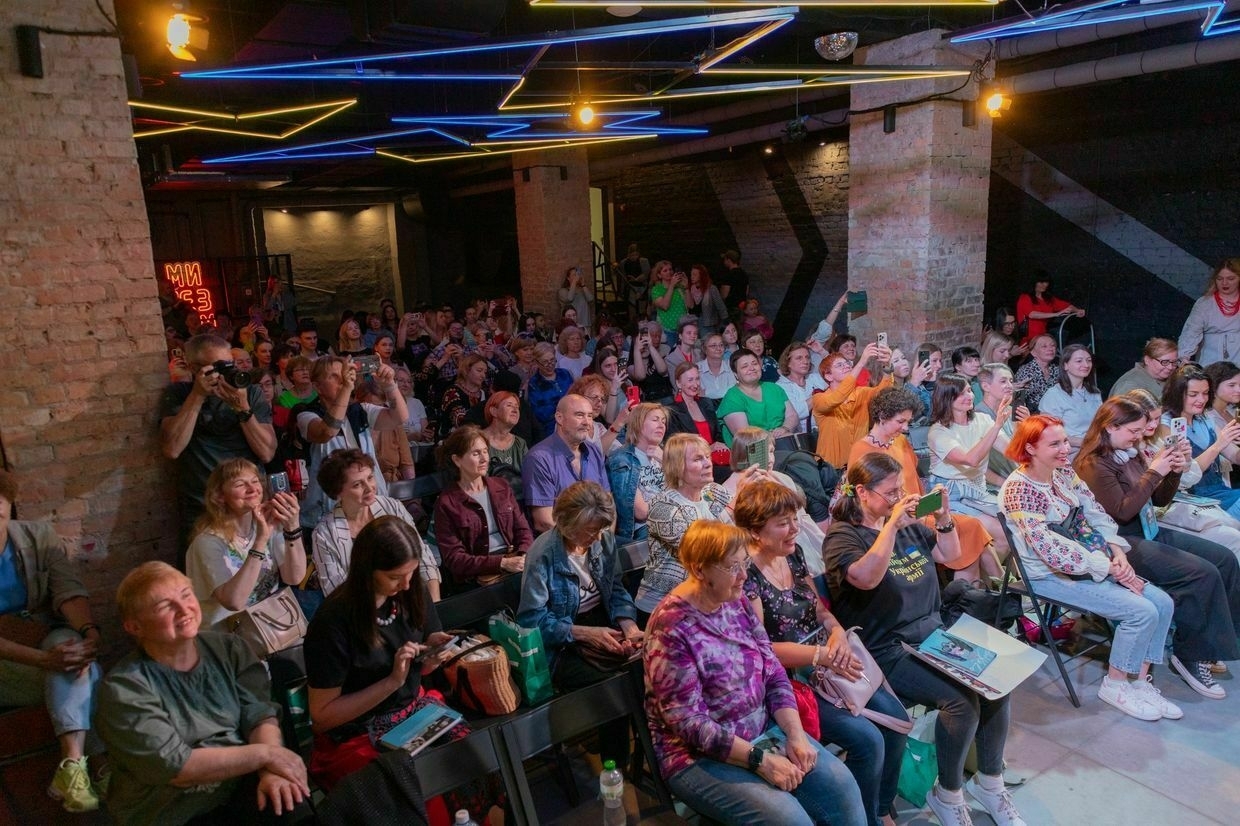
Before her harrowing footage of life in Mariupol under siege from Russian invaders was viewed around the world in 2022, Yuliia Paievksa — call sign “Taira” — was already well known to Ukrainians for leading a volunteer medical unit in Donbas.
Now, the volunteer, soldier, athlete, global activist, and former POW is being lauded once again – as a poet whose debut collection, Nazhyvo (Live), has captured audiences in Ukraine with its fervent writing, inspired by some of the war’s most brutal episodes.
Paievska’s collection is described by Meridian Czernowitz, the literary corporation that published her book earlier this year, as, “This is not just poetry. This is Mariupol in flames. This is captivity and torture. This is life on the edge and love despite everything. These texts didn’t ask for permission to exist. They are about survival against all odds."
Ukraine has seen a wave of new poetry since the start of the full-scale invasion, and, like Paievska, many of Ukraine’s modern poets are also soldiers who use the medium to grapple with the reality of Europe’s largest land war since 1945. Not all have survived, and some of Ukraine’s newest poetry works have been published posthumously.
“During war there is always a surge of poetry, or literature, or painting.”
Paievska began her activist work in 2013 as a volunteer street medic during the months of Euromaidan Protests, when riot police violently attacked pro-European protesters and ultimately killed more than 100 people.
When Russia invaded eastern Ukraine in 2014, Paievska began volunteering as a medic on the frontlines in Donbas, founding the famed all-female volunteer medical corps "Taira's Angels." She spent four years there, during which Taira's Angels saved hundreds of lives, before she joined the Ukrainian Armed Forces.

From 2018 to 2020, Paievska headed a mobile hospital in Mariupol, before continuing her volunteer work.
When Russia began its siege of Mariupol, Paievska and her team frantically worked day and night while under attack to evacuate and save patients on the brink of death. She recorded her efforts on a bodycam, which she got to AP reporters a day before she was captured by Russian forces. The footage shook the world as a rare and stark record of the atrocities committed by Russia in Mariupol.
Paievska spent three months in Russian captivity, during which she was relentlessly beaten, tortured, and forced to appear in propaganda videos.
Since her release, she has continued serving her country in various roles, including as an advocate for prisoners of war, and today as an officer in the ‘Khartia’ brigade of the National Guard.
The Kyiv Independent caught up with Paievska on the sidelines of the Meridian Zaporizhzhia literary festival on June 29 to discuss how writing poetry has changed her outlook, and how the war is shaping Ukraine's modern-day writers.
Editor's note: This interview has been edited for length and clarity.
The Kyiv Independent: What did you learn about yourself or the war, through writing about your experiences?
Paievska: After captivity, after torture, poetry became one of the best therapies. If it weren't for poetry, I'm not sure at all that I would have 100% recovered. But this splash of new personal growth is thanks to poetry.
Poetry requires discipline, thinking. It's a very complicated process. You can't feel sorry for yourself and write poems. You have to concentrate, to enter a certain state. There's a special rhythm, similar to meditation. It is a kind of meditation.
The Kyiv Independent: What is unique in the experience of medics, compared with other roles in war? What attracted you to this kind of volunteering?
Paievska: I love helping people more than trying to kill them. That's my personal reason.
Doctors in war see everything. Things infantrymen don't see, things FPV pilots don't see. The doctor sees all this dirty work of the war. And doctors are usually very psychologically traumatized. Apart from physically.

The Kyiv Independent: What role does poetry and culture have during war?
Paievska: What else is this all for? If we don't have culture, what difference does it make? Culture is the soul of the nation. If there is no culture, then there is no nation.
If you take any country, during war there is always a surge of poetry, or literature, or painting.
There are a lot of girls and boys, both very young and not so young, at the front now. They write poems, good poems. Some are already poets, while some are forged into poets during hostilities, each time the heart confronts (the fact) that they may not survive.
And, unfortunately, we already have many dead poets.
The Kyiv Independent: Are there certain unique qualities in this new wave of writers, compared with other times?
Paievska: It is well known that war is the impetus for innovation. In science, culture, law-making.
Any war promotes new narratives, because war changes society a lot. Society is disintegrating, or vice versa. These things are related.
I can say that patriotic values, freedoms, and universal human values have come to the fore (in Ukraine).
The Kyiv Independent: In terms of narratives, the spread of Russian propaganda has also played a huge role in the war. Does literature play a role in fighting it?
Paievska: If the enemy uses missiles, we must also use missiles, or better missiles.
If the enemy uses literature, we must give stronger and better versions to block this propaganda.
“This splash of new personal growth is thanks to poetry.”
The Kyiv Independent: You wrote poetry in the past, before the war, but only privately. This new collection is the first time you're writing for the public. Why did you decide that you were now ready to publish your pieces?
Yuliia Paievska: First off, (famed Ukrainian author) Serhii Zhadan read my poems, and said that they should be published, that it was good poetry. I trust him. I sat down, wrote a certain amount, and published them.
Before that, my poems were also not bad, but in my mind, they were the type that everyone writes. I didn't think that there was anything too amazing.
As a perfectionist, I'm in the habit of thinking that if I share something, it should be something that has people thinking, "Wow," and not, "What is this?"
The Kyiv Independent: Can you speak a bit more about your writing process? Where are you when you write poetry, and how does it happen?
Paievska: To write, I have to know that I have some free time and won't have to run off anywhere. Usually, if I realize that I have thirty minutes or an hour, something starts forming in my head.
I just write it down, practically without editing, and then leave it. And somewhere after a day I'll revisit it, to see whether I like it or not.
I sometimes change something, a word, but in general, I write down completed poems straight away.
The Kyiv Independent: Many people came to today's literary festival specifically to hear you read. Has the positive reception to your new book surprised you at all?
Paievska: People understand how sincere the work is. And it brings them back. All Ukrainians are more or less psychologically traumatized because of shelling, because of losing relatives, because of injustice, because of Russia's unprovoked attack.
My poems on their condition resonate well. I say what they feel, I manage to put it in the form of poetry.
Note from the author:
Hi, I’m Andrea Januta, the author of this piece. Thank you for reading. As a writer living in Kyiv, I’m always trying to share stories not only about the country’s challenges, but also about the fabric of Ukrainian society that so many are fighting to preserve — from sports and religion, to bird watchers and literature. It’s meaningful but difficult work. If you’d like to support the Kyiv Independent’s ability to tell these stories from Ukraine, please consider supporting our work by becoming a member.
 The Kyiv IndependentAndrea Januta
The Kyiv IndependentAndrea Januta
